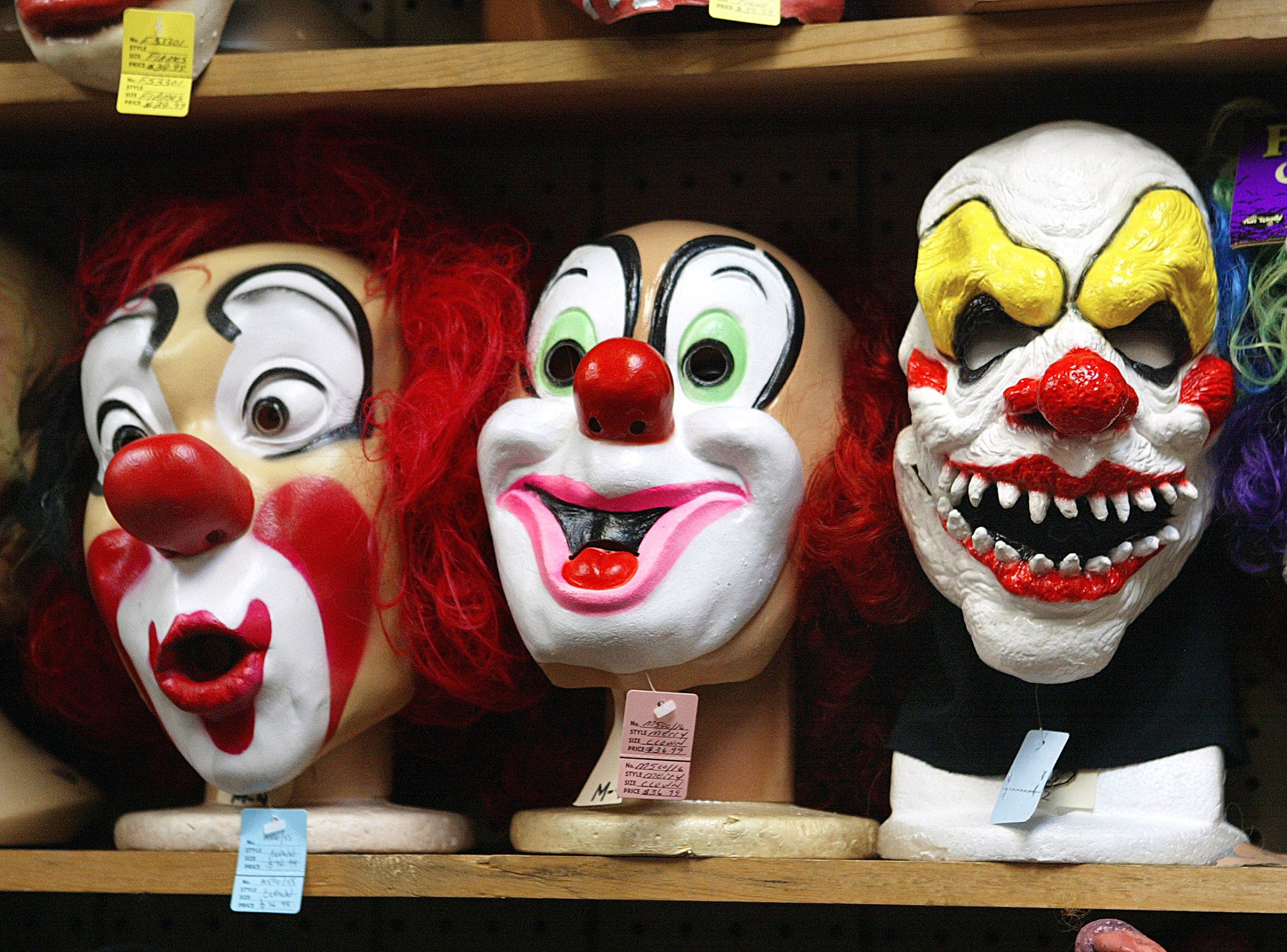
Scared of clowns? You’re not alone. After unsubstantiated reports of people in clown costumes trying to lure children into the woods in South Carolina, which first surfaced in August, there have been so-called “scary” clown sightings in more than two dozen states, including Wisconsin, Alabama and New York. Most were hoaxes, often posted on social media or called into police departments by pranksters, and so far, none have led to any serious injuries or deaths.
It’s easy to dismiss events like these as funny or amusing, especially given their proximity to Halloween. But the hysteria they’re creating is very real. In recent weeks, clown threats (both real and imagined) have put a Massachusetts college on lockdown, led hundreds of students at Penn State to go “clown hunting” and elicited a response from White House press secretary Josh Earnest. “Obviously, this is a situation that law enforcement is taking quite seriously,” he said.
Clowns have long been a subject of fear and fascination, especially in the 1980s, when John Wayne Gacy, who sometimes dressed as a clown, was convicted of 33 murders and when Stephen King’s It introduced the world to Pennywise. Most clowns, of course, are harmless and fun. But because they paint their faces with extreme emotions and hide under masks and makeup, there’s also a creepy factor. They “could be anyone or anything,” says Scott Bonn, a criminologist and professor of sociology at Drew University in New Jersey, which is “actually very frightening.”
Officials have tried to ease this new wave of fears by suggesting scary clown reports are a passing fad. “This is no different than swatting,” says David Hartman, spokesman for the New Haven, Conn., police department, referring to a formerly popular hoax in which 911 callers sent SWAT teams to homes under false pretenses.
But Jordan Jones, who works as a clown named Snuggles at a haunted house in Maryland, says he’s worried that people will start to see clowns–especially scary-looking ones–as a legitimate threat. “I fear for my life,” says the 22-year-old, who started a Clown Lives Matter movement on his Facebook page, adding that someone could “take a swing” at him when he’s in costume. Amid the paranoia, Jordan urges the public to remember that there’s a person under every clown mask, and most clowns just want to entertain. “We’re not the people in the woods,” he says. “I’m not the enemy.”
More Must-Reads from TIME
- Donald Trump Is TIME's 2024 Person of the Year
- Why We Chose Trump as Person of the Year
- Is Intermittent Fasting Good or Bad for You?
- The 100 Must-Read Books of 2024
- The 20 Best Christmas TV Episodes
- Column: If Optimism Feels Ridiculous Now, Try Hope
- The Future of Climate Action Is Trade Policy
- Merle Bombardieri Is Helping People Make the Baby Decision
Contact us at letters@time.com